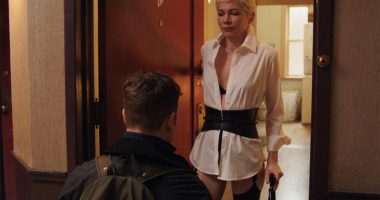National Australia Bank makes grim interest rate forecast for millions of home-owners – here’s what you need to know
- NAB expecting another rate rise in July
- Predictions changed days after Budget
<!–
<!–
<!– <!–
<!–
<!–
<!–
National Australia Bank is now expecting the Reserve Bank to hike interest rates again – changing its prediction days after the Budget.
Australia’s biggest business lender is predicting another 0.25 percentage point rate rise in July, that would take the cash rate to a new 11-year high of 4.1 per cent.
NAB chief economist Alan Oster stressed the bank’s revised prediction was not a reflection of Treasurer Jim Chalmers’s latest Budget, which raised JobSeeker unemployment benefits by $40 a fortnight.
‘Importantly, our rate call is not a response to the recent federal Budget, which we judge to be broadly neutral in terms of its effects on inflation and implications for monetary policy,’ he said.


National Australia Bank is now expecting the Reserve Bank to hike interest rates again – changing its prediction days after the Budget
But a July rate rise would make the 12th increase since May 2022 and be the most severe since the era of an RBA cash rate target began in 1990.
Read Related Also: Texas man uses a $30 Apple AirTag to track down the thief who stole his Chevy truck
The Reserve Bank raised rates in May, surprising financial markets, even though inflation in the March quarter had eased to 7 per cent, down from a 32-year high of 7.8 per cent at the end of 2022.
NAB said a July rate rise was now highly likely, after RBA Governor Philip Lowe hinted this month more rate rises were likely to tame inflation.
‘After a sequence of surprises from the RBA in recent months, we are reverting to our baseline expectation from February that the cash rate will rise to a peak of at least 4.1 per cent – which we pencil in for July, though we see some risk the RBA could wait till August,’ it said.
ANZ is also expecting another rate rise, but in August, that would take the cash rate to 4.1 per cent.
Mr Oster does not believe one more rate rise will trigger a recession but AMP chief economist Shane Oliver fears it will.
This would mark the first economic contraction, triggered by tighter monetary policy, since 1991, after rates hit 17.5 per cent in January 1990.
The Commonwealth Bank, Australia’s biggest home lender, says May’s rate rise was the last and is expecting a 0.25 percentage point rate cut in November.






